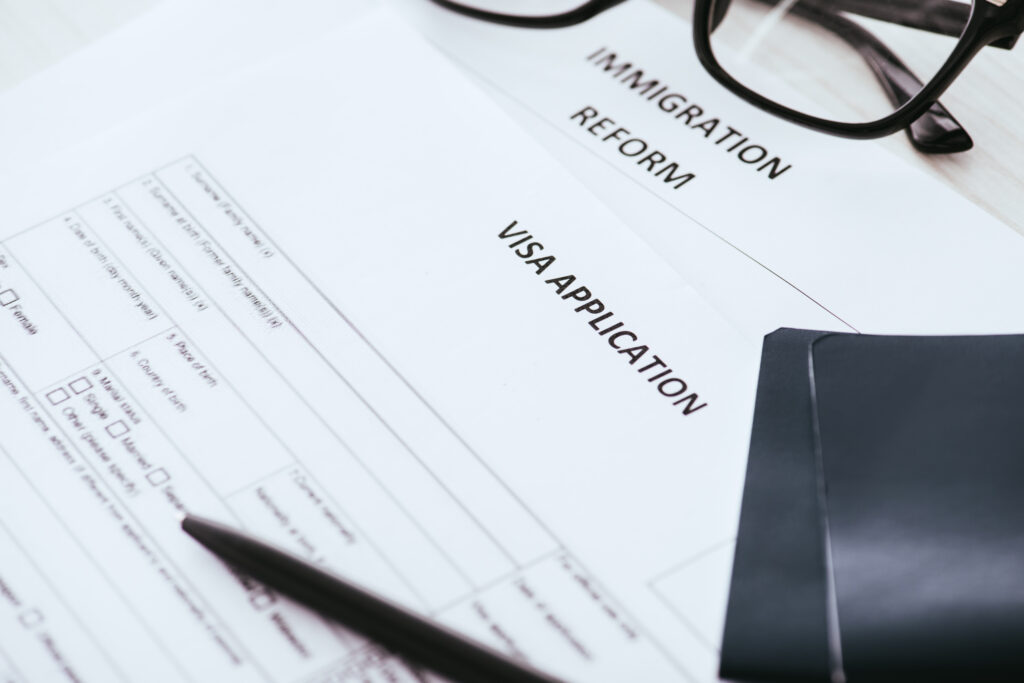Employer crackdown is reshaping how both businesses and Skilled Worker applicants approach the visa process in 2025. The emphasis is no longer only on securing a role or meeting salary thresholds, but on living and working within a system that places compliance at its centre. For visa holders, this means navigating a more demanding environment where every stage of employment is closely tied to their employer’s ability to maintain strict standards. Stricter enforcement, regular checks, and tighter rules around the right to work have become part of the daily reality. Employers are expected to demonstrate higher levels of accountability than ever before, and this inevitably affects the security and stability of those who rely on them for sponsorship. For Skilled Worker applicants, understanding this shift is vital, not just for securing a visa but for maintaining peace of mind throughout their time in the UK.
Recent Developments
In 2025, the Home Office has stepped up its focus on employer compliance and illegal working. More attention is being placed on how sponsors manage their licences and follow the rules, with inspections and enforcement visits becoming more common. This increased scrutiny is part of what is being called the UK visa compliance crackdown 2025 — a concentrated effort to ensure that only employers who fully adhere to sponsorship duties can hire foreign workers. The goal is to protect both workers and the integrity of the immigration system, making it clear that employers and visa holders alike need to stay vigilant and compliant.
What does this mean for Visa Holders?
If you hold a Skilled Worker visa, or are applying for one, here are some of the most important effects to understand:
1. Greater Employer Accountability
With licences being revoked more frequently, visa holders face less certainty about employer stability. If a sponsor licence is suspended or withdrawn, a worker could lose their certificate of sponsorship or need to secure a new sponsor quickly. It is important for visa holders to ensure their employer is fully compliant — this means meeting visa obligations, paying correctly, using the appropriate job role definitions, and conducting right-to-work checks properly.
2. Increased Right to Work Checks
Employers are under pressure to carry out right-to-work checks thoroughly. The regime is being expanded, especially affecting sectors like the gig economy, delivery services, and zero-hours contracts.
If your employer fails to perform these checks or retains inadequate records, you could be affected indirectly—for example, by being asked to prove your status, or, in worst cases, losing eligibility to work.
3. Stricter Penalties and Sponsor Duties
Employers who violate rules face heavy sanctions: licence suspensions or revocations, civil penalties, or even being banned from sponsoring foreign workers in the future. Some penalties reach up to £60,000 per illegal worker.
From your side, this means you should ensure that your employer is transparent, follows the law, and maintains their licence in good standing. Being employed by a non-compliant sponsor can place your visa status at risk.
4. Unannounced Inspections & Audits
The Home Office is conducting more unannounced compliance visits. Companies are being audited for how they apply sponsor duties, whether records are properly kept, and how they treat their employees.
Visa holders should be prepared: the employer’s policies and procedures must be compliant, but sometimes you may need to show your own documentation or understand how the checks work.
Key Facts to Know
Here are verified data points that reflect how serious the crackdown is:
- Approximately 1,948 sponsor licences were revoked between July 2024 and June 2025.
- Illegal working visits increased by 48% compared to the previous year.
- Civil penalties up to £60,000 per illegal worker for businesses employing workers illegally.
- Expansion of right to work checks into gig economy and zero-hours work.
What Visa Holders Should Do?
To navigate the UK visa compliance crackdown 2025 safely, visa holders should take certain steps:
- Check your employer’s credentials
Ensure your employer has a valid sponsor licence and is known to be in compliance. You can sometimes check this via public registers or by asking HR directly. - Know your visa conditions
Understand what your visa allows you to do: your permitted job role, employer, salary, and rights. If anything changes with your employer (e.g. business changes, layoffs, suspension), you should understand how that might affect your rights. - Maintain your own documents
Keep copies of your Certificate of Sponsorship, contract, pay slips, right to work documents, and correspondence with your employer. If there is a compliance check or audit, these may help you. - Be vigilant about rights & pay
If your employer is undercutting British workers, underpaying, or otherwise violating employment laws, these are red flags. If you suspect illegal working policies or mistreatment, get advice. - Stay informed about rule changes
The Home Office has published new policies and proposals, many of which are active or expected soon. Changes in definitions of roles, sponsorship requirements, fees, and compliance expectations can affect you.
Sectors Most Affected
Some industries are more exposed than others under the tightened compliance regime:
- Social Care: Many employers in this sector have had licences revoked following abuses and rule violations.
- Hospitality, Retail and Construction: These sectors have seen high revocation rates and illegal working enforcement.
- Gig Economy: Delivery services, couriers, and contractors are being more closely regulated regarding employment status and right to work checks.
The Bigger Policy Context
- The “Restoring Control over the Immigration System” White Paper (2025) sets out many of the new controls that are now taking effect, including tightening sponsorship requirements, raising skill thresholds in some cases, and reducing routes prone to abuse.
- To reduce migration abuse and illegal working, the Home Office is investing more in intelligence-led enforcement and cross-government data sharing.
Risks if Visa Holders or Employers Get It Wrong
The consequences of non-compliance can be serious:
- Your visa may be curtailed or revoked if your sponsor loses their licence.
- You may need to find a new sponsor, which can be difficult and time-sensitive.
- Employers can face heavy fines, reputation damage, and loss of ability to sponsor foreign labour in future.
- In worst cases, insufficient right to work checks or misuse by employers can result in deportation or loss of legal status.
What to Expect in the Coming Months?
Visa holders should watch out for:
- More unannounced compliance visits.
- New guidance from the Home Office is tightening what sponsor-licence holders must do.
- Possible sector-specific reforms, especially in social care and the gig economy.
- Changes to visa fees or permit application criteria.
Final Word!
With licences being revoked more frequently, visa holders face less certainty about employer stability. If a sponsor licence is suspended or withdrawn, a worker could lose their certificate of sponsorship or need to secure a new sponsor quickly. It is important for visa holders to ensure their employer is fully compliant — this means meeting visa obligations, paying correctly, using the appropriate job role definitions, and conducting right-to-work checks properly. For more guidance and updates on navigating Skilled Worker rules, follow Skilled Worker Mag.



